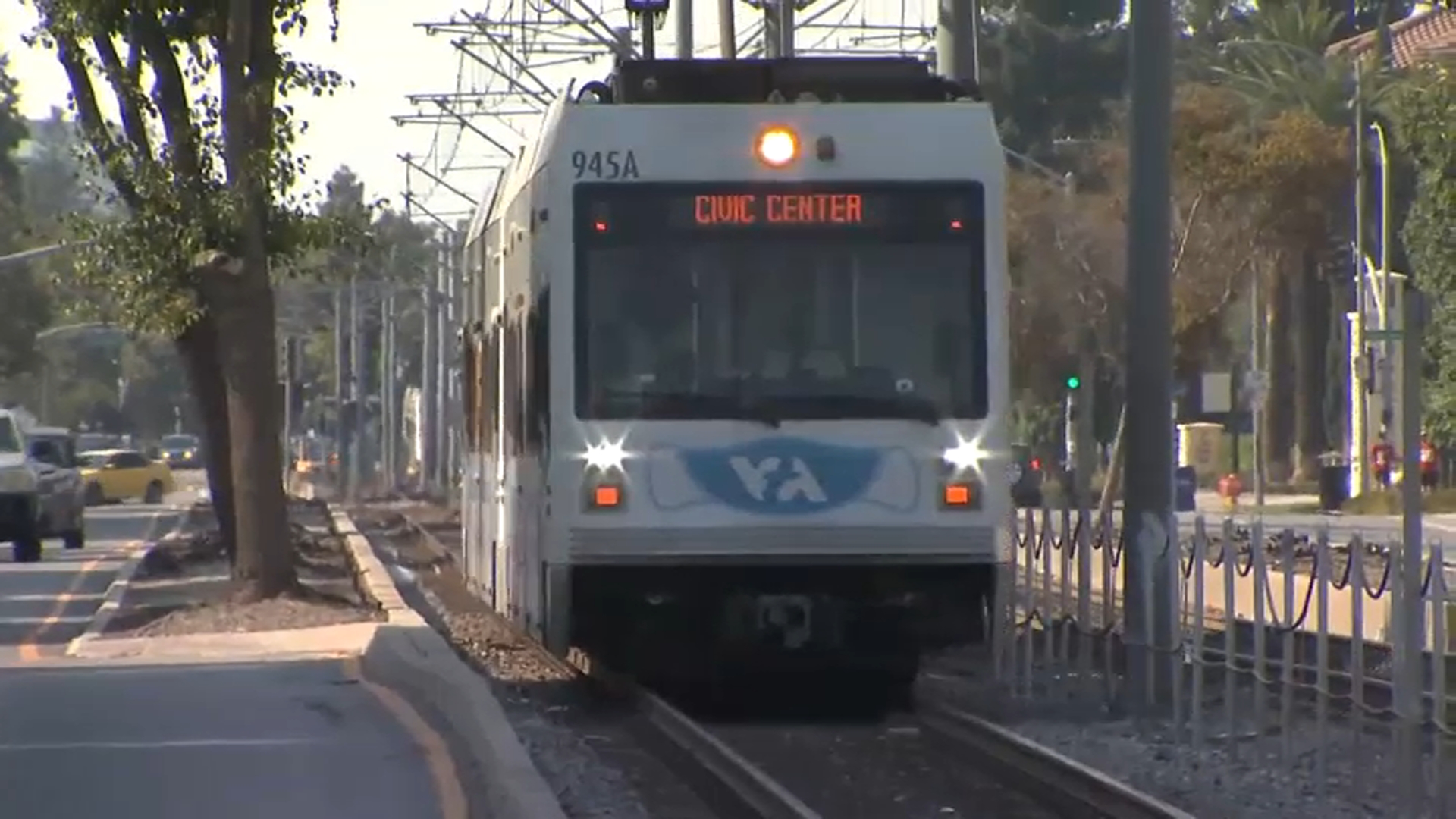NBC Bay Area’s Investigative Unit has learned that PG&E submitted as many as a quarter of a million false on-time inspection reports to state regulators under its program aimed at preventing accidental dig-ins on its gas lines. Investigative Reporter Jaxon Van Derbeken reports.
NBC Bay Area’s Investigative Unit has learned that PG&E submitted as many as a quarter of a million false on-time inspection reports to state regulators under its program aimed at preventing accidental dig-ins on its gas lines.
“811 is a free service, I’m passionate about it,” PG&E’s Jamir Dixon said in a company ad back in 2015, describing his dedication to marking gas lines to prevent dig-in accidents by homeowners and construction crews.
“If me driving that truck means that someone gets to go home safer, I’d drive it every day of the week.”
The ad produced a flood of calls that the already understaffed program was not capable of answering within the two-day statutory deadline, according to testimony in the ongoing state regulatory action against PG&E involving allegations of false on-time reports.
Regulators allege that under management pressure, PG&E workers ended up submitting “tens of thousands” of responses as on time, that were, in fact, beyond the 48-hour deadline.
Accountings by the outside economic consulting firm, Bates White, show that in the five year period ending in 2016, the company underreported its late responses by as much as 130,000 to 250,000, depending on the criteria used.
“The number is scary -- it’s frightening,” said State Sen. Jerry Hill, (D-San Mateo), a frequent critic of PG&E who has pushed for better efforts to prevent accidental gas pipeline dig-ins.
Local
Hill says the 48-hour state mandated response time is there to keep anxious crews facing their own deadlines from digging blindly.
“This has the potential for devastating results,” he said. “We’re lucky -- we missed it this time.”
The effect of the alleged management pressure was most evident in 2016, the year after the ad ran.
PG&E officially reported just 44 responses as coming too late to meet the 48-hour deadline. The actual number of late responses ranged between 30,000 and 55,000, according to Bates White.
In that same year, a whistle-blower -- who was fired by the company after he suggested it was unsafe – told federal pipeline safety officials that 811 program manager Joel Dickson had been pressuring workers to say they were responding on time.
Dickson, by the account of one of the whistle-blower’s colleagues included in the regulatory record, went so far as to pound his fist on the table and say, in effect, “if there is a single late ticket on a desk, you will answer to me.”
While no one was specifically told to lie, the whistle-blower testified, the message was clear. “Everyone knew it,” the whistle-blower told regulators with the state Public Utilities Commission. “It wasn't a secret that the expectation was these folks reflect whatever they had to do as long as it wasn't reflecting as late.”
Sen. Hill said that kind of intimidation leads to unacceptable, but predictable, results.
“You don’t tell someone we will take no late tickets, we will not accept late tickets,” Hill said. “Because what’s someone going to do when their job is on the line? They’re going to falsify something, they may lie to cover themselves. We can’t afford that.”
“The record isn’t worth the paper it’s written on, if it’s false,” said Britt Strottman, an attorney who represented the city of San Bruno after the gas pipeline blast there that killed eight people in 2010.
Strottman focused much of her work on allegations of shoddy record-keeping by PG&E, which ended up becoming a large part of the $1.6 billion penalty exacted against the company by state regulators.
“To fine them and spend years and years in court,’’ she said, “we’re still hearing the same story -- that they are falsifying records and they don’t know which documents they have are correct -- that puts everybody’s safety at risk.”
While PG&E recently acknowledged problems with the program and ordered a management shakeup, we have learned that Dickson, who was accused of pressuring workers, was promoted in 2017 to a post overseeing the company’s electrical operations. He started working as a consultant in January.
Also in January, the executive directly over Dickson, Jesus Soto, was given a $75,000 raise. He now earns $575,000 a year and serves as the company’s senior vice president over gas operations. PG&E’s board handed out the raise just days before the company filed bankruptcy last month.
Both Dickson and Soto denied wrongdoing in their testimony to state regulators. They both acknowledged, however, that management had expected as few late responses as possible.
Dickson denied pressuring workers to submit zero late tickets, but added: “I will say I set clear expectations…that that's what we are required to do by (state law), and we should do everything within our power to meet that 48-hour window. That absolutely was communicated to everybody within the group and within PG&E.”
When Soto testified, he acknowledged he was involved in firing the whistle-blower, but stressed it was not related to any concerns he may have raised over safety.
In a regulatory filing on the case, PG&E says the allegations involve conduct where the company “fell short of the high standards of integrity and the ethical action’’ the company has set and was “unacceptable and was not, and is not, condoned by PG&E.”
The company says that it is addressing “gaps in culture, organization and systems,” with an eye to bolstering its safety culture.
“Such transformations are difficult and take time, and PG&E is steadfastly committed to this important effort. PG&E has more work to do, and PG&E does not dispute the scope of issues as framed” in the case.



